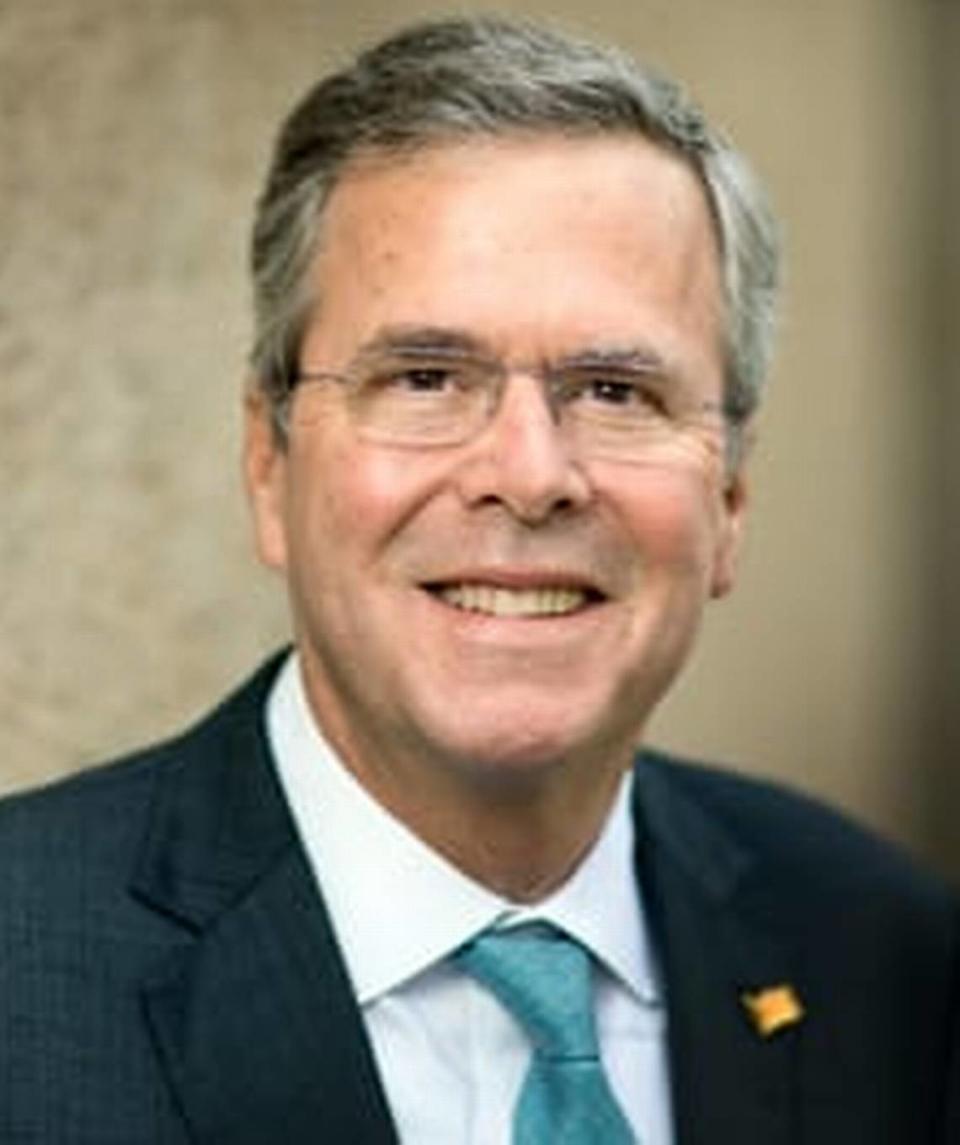Jeb Bush: Biden must act on ‘grave threat’ as Maduro’s Venezuela aligns with Iran and Hezbollah | Opinion
- Oops!Something went wrong.Please try again later.
- Oops!Something went wrong.Please try again later.
Under the illegitimate rule of Nicolás Maduro, Venezuela has grown closer than ever to the Islamic Republic of Iran. Absent a robust response from President Biden to isolate both regimes from each other economically and militarily, Venezuela may become a forward operating base in the Western Hemisphere for Iranian forces to undermine U.S. national security.
Over the last 18 months, there have been a series of events that the U.S. intelligence, military and diplomatic communities should consider a grave threat. The Islamic Revolutionary Guard Corps (IRGC), a U.S.-designated Foreign Terrorist Organization, has used the airline it controls to ferry refining equipment to Maduro’s state-controlled oil company, Petróleos de Venezuela, S.A. (PDVSA), and gold bars from Caracas to Tehran. For the first time in its history, the Iranian regime has directed its fleet of tankers and naval warships to cross the Atlantic. In recent weeks, Maduro and the Iranian regime have agreed to trade heavy crude oil and condensate with each other, and Iran then sells that oil to willing buyers in China who are also guilty of U.S. sanctions busting.
Hezbollah in Venezuela
However, perhaps most alarming is the admission from Maduro’s former security chief that Iran-backed Hezbollah — which killed more Americans than any other terror group prior to 9/11 — operates freely in Venezuela. Hezbollah uses Venezuela to raise funds for terror operations through illicit businesses. It also bolsters the Maduro regime’s defense capabilities in the event it ever faces a military assault.
Notably, Hezbollah’s friendliest base of operations in Latin America is in Caracas. Hezbollah has a far longer history in Argentina and the tri-border region between Argentina, Brazil and Paraguay. Only in Venezuela, though, can Hezbollah count on a government that has gone out of its way to be hospitable. Under Maduro, Venezuela has allegedly granted residency documents to Hezbollah operatives, allowing them to travel freely throughout Latin America.
The Maduro regime also stands to benefit from Iran’s expertise in domestic surveillance and drone technology that it has eagerly exported to terrorist proxies throughout the Middle East. In what may be an ominous warning of Venezuela’s enhanced capabilities to repress opposition forces and fend off the U.S., Venezuelan opposition leaders told reporters last year that Iran is suspected of assisting Maduro in the development of a “listening post in northern Venezuela to intercept aerial and maritime communications.”
This is not to mention that Colombia has been eyeing developments in Venezuela warily. In 2020, President Ivan Duque stated publicly that “there is information from international intelligence organisms that work with us which shows there is interest from the dictatorship of Nicolás Maduro in acquiring some medium and long-range missiles through Iran.” Additionally, El Tiempo this month reported that Iran’s proxy Hezbollah was plotting to use former operatives of the Revolutionary Armed Forces of Colombia (FARC), who trained in Venezuela, to attack Israelis in Bogota and that Hezbollah has been spying on Americans in the country. This should concern any American administration.
U.S. position weak
The recent extradition of Alex Saab to the U.S. — who functioned as an envoy for Maduro to Iran — as well as a U.S. diplomatic campaign to turn away Iranian naval vessels once thought to be en route to Venezuela this year were important steps. However, the tools the U.S. is presently reliant upon haven’t done enough to slow Iran’s influence on a country that I once called home. Under former President Donald Trump, the U.S. seized four Iranian tankers heading to Venezuelan ports and sold its illicit cargo, but the oil has kept coming. The U.S. position remains weak due to the laxity of sanctions enforcement, and Iran is all too eager to thumb its nose at Washington.
Iran’s embassy in Caracas openly declares that “Venezuela paves the way for Iran to overcome sanctions.” It’s time for President Biden to put an end to that by making it far more difficult for the Maduro and Iranian regimes to support each other.
The U.S. should significantly strengthen its enforcement of sanctions against Iran and expand them to target the vessels, their owners and operators, ship captains, insurance, and classification companies that enable its maritime trade. The U.S. should work to block the Iranian regime from using its state-controlled HispanTV — a Spanish language network — from propagandizing to Latin Americans. The U.S. should object to any nation permitting the IRGC-controlled airline Mahan Air to traverse its airspace or land in its territory. And President Biden should order the U.S. Navy to stop vessels carrying illicit cargo from reaching port, whether that be in Venezuela, China, Syria, Lebanon or elsewhere.
Steering the Americas
None of these actions align with President Biden’s current diplomatic effort to entice the Iranian regime to comply with the terms of the Joint Comprehensive Plan of Action (JCPOA) through willful blindness to Tehran’s accelerations in uranium enrichment activities, advanced centrifuge operations and sanctions evasion. But they are necessary, particularly if the Biden administration remains committed to steering the Americas economically, diplomatically and militarily.
The Monroe Doctrine may or may not still be in force, but the U.S. retains an undeniable interest in preventing the world’s foremost state sponsor of terrorism from filling the vacuum left by a failing Venezuelan state, and in ensuring that the future of Venezuela is free, democratic, trustworthy and prosperous once again.
Jeb Bush was the 43rd governor of Florida. He is an advisory board member of United Against Nuclear Iran (UANI).


